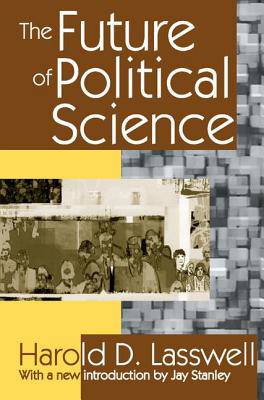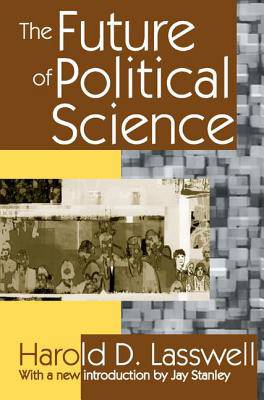
- Retrait gratuit dans votre magasin Club
- 7.000.000 titres dans notre catalogue
- Payer en toute sécurité
- Toujours un magasin près de chez vous
- Retrait gratuit dans votre magasin Club
- 7.000.0000 titres dans notre catalogue
- Payer en toute sécurité
- Toujours un magasin près de chez vous
274,95 €
+ 549 points
Format
Description
Harold D. Lasswell is arguably the quintessential face of political science to the larger public of the past century. However, there is a side to Lasswell less well known, but of special importance in this day and age: the place of the profession of politics as an academic activity. This book, written at the start of the culture wars thirty years ago, outlines the basic core position of political science practitioners. It helps to explain why the field kept its collective cool, when other social science professionals veered to more extreme activist positions.The Future of Political Science grew out of the phenomenally rapid expansion of the study of government in the United States and elsewhere. The study of professionalism among physical scientists, lawyers, engineers, etc. was not matched by such internal examination within the social sciences until much later. Lasswell's overview centered on developments in the United States. There unfettered study of government reached unprecedented heights in the final stage of the twentieth century. The key concept of this volume, one that continues to inform discourse, is the relationship of political science as a mechanism for the study and teaching of the political system to the field as a tool of the Establishment. This concern grew in the wake of a variety of scandals and secret support sponsored by both government and non-government organizations alike.The Future of Political Science covers areas ranging from membership size and disparities, intervention scenarios in world events, the nature of creativity in political research collaboration in projects with the other social sciences, and the location of scientific centers of gravity in the study of politics. Because of Lasswell's works we have a field of the political science of knowledge as well as the sociology of knowledge.Harold D. Lasswell served as Ford Foundation Professor of the Social Sciences at Yale University, Distinguished Professor of Policy Sciences at John Jay College of the City University of New York, and as professor of political science at the University of Chicago. He was a past president of the American Political Science Association and author of many books covering the full range of political and policy research. Jay Stanley is professor emeritus of sociology at Towson State University. He is former editor of Armed Forces & Society, and co-author of Challenges in Military Health Care.
Spécifications
Parties prenantes
- Auteur(s) :
- Editeur:
Contenu
- Nombre de pages :
- 280
- Langue:
- Anglais
Caractéristiques
- EAN:
- 9781138535817
- Date de parution :
- 17-07-17
- Format:
- Livre relié
- Format numérique:
- Genaaid
- Dimensions :
- 152 mm x 229 mm
- Poids :
- 544 g

Les avis
Nous publions uniquement les avis qui respectent les conditions requises. Consultez nos conditions pour les avis.






